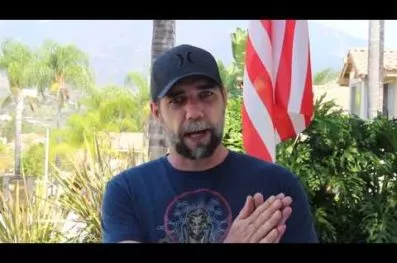Paying “Extra” On Your Loan – Mortgage Rigormortis!

Va Loans
REAL ESTATE FOR VETERANS
Paying “Extra” On Your Loan – Mortgage Rigormortis!

Peter Van Brady
Founder of SoCal VA Homes
Author: Avoiding Mistakes & Crushing Your Deals Using Your VA Loan
March 6, 2020 (last updated August 17, 2022)

Peter Van Brady
Founder of SoCal VA Homes
Author: Avoiding Mistakes & Crushing Your Deals Using Your VA Loan
Beware… This could be your biggest financial mistake!
This is likely the most important chapter in this book! We have consulted hundreds of Veterans who seem continually intent, in our opinion, on making the mistake of paying extra on their mortgage. A lot of clients call and tell us that they want to pay off their loan in order to be debt free. The advantage of paying off your mortgage is singular and clear. You have the security of owning your home outright and being debt free. Surely that is a long term goal to which everyone aspires to, right?
Though paying off your mortgage is an idea (even a value) that most people subscribe to, we don’t believe in it and don’t recommend it. There are a number of disadvantages, in our opinion, that outweigh any advantage when it comes to smart management of your finances. Frankly, this common and easy mistake to make, represents…a very slow financial death.
Accelerated Loss of Your Tax Deduction
Most tax payers enjoy the deduction that the interest expense on their home loan offers when they “itemize” their deductions on their Schedule A of their federal tax returns. If you’re already enjoying that deduction, and you are “paying extra” on your mortgage, you are accelerating or speeding up the LOSS of that important tax deduction. Normal amortization will naturally reduce this deduction over time as less interest expense is charged due to reducing principal balance. But WHY would anyone want to potentially increase the speed of paying MORE in taxes each year?
Most of us are raised and taught to work hard, save money, and pay our bills. We agree, yet we’re still opposed to the idea of accelerating your mortgage payments by paying extra on your loan. It may sound or feel uncomfortable at first as you attempt to get used to the idea of staying in debt for your own benefit. The majority of Americans have been taught that paying off debt is both morally correct and financially smart. Unfortunately, the majority of Americans retire broke with Social Security as their primary source of income – a sad, but true statistic.
Loss of Your Liquidity
When you are paying down a mortgage you are eliminating your liquidity. Liquidity means cash in the bank. Liquidity means you have cash in investments that you can “liquidate” and convert to cash immediately, including stocks and bonds. When you are in an “illiquid” financial state, it means that you don’t have much cash, or you don’t have the ability to convert assets to cash quickly. This “financial state” or status is a recipe for potential financial disaster! Having a large emergency fund is the beginning ingredient of being liquid or having liquidity.
Here’s what it might look like to make the mistake of paying extra on your mortgage and not have an appropriate emergency fund. Imagine your mortgage payment is $1500/month, but you have an aggressive plan to pay it off by writing a check for $2000 every month. That’s admirable, but there are probably hundreds of ways you could use that extra $500/month to strengthen your finances, especially enhancing your emergency fund. Many people are worried about paying off their mortgage but don’t have an emergency fund! That makes no sense at all. When a financial crisis hits those without an emergency fund, credit card balances begin to skyrocket.
If an unexpected financial crisis is a result of health problems (which is very common,) and insurance doesn’t cover all the doctor bills, the result is often medical collections. If the credit card payments can’t be made, charge-offs from these accounts appear on your credit report. Subsequently, new credit applications will be denied. If the situation is not corrected, the only option may be bankruptcy.
The bottom line is people who are more liquid in their financial management survive financial hardship far more effectively. They resurface on the other side of a crisis in much better shape than those who are illiquid and don’t have any savings.
Accelerating your mortgage payments by paying extra on your loan is INCREASING your illiquid status. It is also increasing your likelihood of falling into a crisis mode should an unexpected financial shockwave occur that requires liquidity beyond your means. If your only asset is your home equity, your only options in response to such an occurrence is to borrow from your home IF, and I do mean IF, a loan is available. Your last resort would be to sell your home. And the real estate market climate, when there are large economic shockwaves, is never favorable. In these types of markets such as in 2008, investors who are liquid are like opportunistic carnivores, feeding on the demise of other’s misfortunes. In other words, investors make up a large portion of the universe of buyers in this type of market when there exists financial chaos. And investors only buy homes at discounted prices. If you’re forced to sell in this kind of climate, you’re not going to get the price you want.
When you are prepaying your mortgage, it means that you’ve stuck your money into your home…where it is…stuck. If you are paying down the mortgage, you are building equity, but you’ve converted a liquid asset into an asset that is very illiquid. Why would you want to take your money and use it to eliminate liquidity?
Let’s look at it another way. You are paying off debt that is only costing you 3% - 4% a year, where as an investment advisor could give you a half dozen investment ideas where you might be able to make 4% - 10% annually. You may think you don’t have enough money to have such an advisor, but you might be surprised to know that large investment companies, such as Vanguard, Fidelity, Oppenheimer, etc., will often accept contributions as low as $50/month to their investment funds. And as the founder of SoCalVAHomes, I consider myself qualified to offer investment ideas. I have more than thity years of investing experience and previously held Series 3, 6, and 63 securities licenses.
What is “Cheap Debt?”
Of course, the conservative thing to do would be to pay off your mortgage. In our opinion, that is not the smartest thing to do, especially when debt is so cheap right now. And debt will always be cheap, relatively speaking. What exactly is cheap debt, and why is it “relatively” cheap?
Cheap debt could be defined as an “inexpensive interest rates” relative to the opportunity cost of money. Opportunity cost is a term, mostly used in finance, to describe the “cost” of not doing something or not participating in an investment. When an event produces a result, but you’re not participating in that event and achieving that result, it’s “costing” you the value of that result, not to participate. In this case, we’re comparing a “cheap” interest rate to the return on an investment. For example, if your mortgage rate is 4% and the stock market goes up 15% in a year, the true opportunity cost of your money is the difference between the 4% your loan costs and the 15% earnings you can make by investing in the stock market. This example doesn’t even consider the combined effect when including the tax deduction likely available from the mortgage interest expense.
In the above example, your opportunity cost of money is pretty high because the opportunity to participate in the stock market gains was a good opportunity! But again, why is debt always relatively “cheap”?
Debt or mortgages almost always have lower rates of interest than the opportunity cost, (yield or investment return,) of slightly riskier investments. As an investment strategy, you could actually invest in mortgages, taking the other side of the transaction as an investor, not a borrower. Money for mortgage loans comes from institutional and private investors. The relationship of rates as a borrower (with great credit) to returns on investments for stocks and other alternatives is almost always a relationship of lower borrowing rates to higher investment yields. Therefore, this debt is almost always “relatively cheap!”
In the years since the financial crisis of 2008, this relationship has demonstrated extraordinary opportunity costs. Debt was cheaper than ever because interest rates were held extremely low by the Federal Reserve’s activities. To stimulate economic recovery, they lowered lending rates to banks (a common activity,) and through additional financial engineering known as “quantitative easing” (an unprecedented activity in the U.S.), they manufactured extremely low rates for an extended duration. Mortgage interest rates declined from approximately 6.00% to nearly 3.00%. In the heat of the financial crisis, stocks were badly beaten down, and in retrospect, the rebound in the stock market was sensational. If you had bought tons of stocks in 2009 (like Warren Buffett did) you would have made a fortune in the following six years.
Why are most people in a hurry to pay off such “cheap” debt when the opportunity cost of their money is so high? Take that money, and instead of disproportionately paying down debt or paying more on your mortgage, invest it elsewhere. Managing investments is something that everyone struggles with. It is natural to wonder where to put your money in every economic environment. But the bottom line is, your money needs to work hard for you.
Average returns in the stock market since the 1920s have been around 8%. In the recent years, the Dow Jones has traveled from its pre-crisis high in 2007 of about 14,200 down to about 6500, then back to about 18,000 in 2015. Stock market returns have been HUGE. Yet interest rates have been extremely low (and are often given credit for the much of the stock market gains). Super “cheap debt” was at 3% and 4%. So when debt is so cheap, don’t pay it off. Stay in debt and put your extra funds into something that returns 8% such as stocks, or perhaps a conservative mutual fund that is a mix of stocks and bonds. Or maybe you could choose a really conservative mutual fund that invests in real estate such as a real estate investment trust. These are some opportunities which define the opportunity cost of money that makes debt relatively cheap.
The Realities of Retirement Can Be Negatively Affected By Paying Extra on Your Mortgage
This common financial strategy is about so much more than lower interest rates and appropriate financial management. It’s about avoiding something truly sobering and terrifying statistics show that up to 75% of Americans will retire “broke”, as defined as needing to live solely off social security. And a recent study predicts that 95% of baby boomers will die broke, leaving nothing to their heirs! When we say “paying off your mortgage is strategically unwise,” we are also asking “Do you want to be like 75% of Americas who retire broke? Or do you want to be smart, use a sound financial strategy, invest, and create a portfolio that enriches your life and secures your future?”
Another thing to consider is whether it’s advantageous to have tax deductions in your later years. If you’re content with a retirement income of only social security or disability payments, you probably aren’t going to have a tax problem in your later years and tax deductions won’t be as important. But trust us, you want a tax problem! While that initially sounds as backwards as embracing debt, “having a tax problem” means that you have enough income to incur the tax liability (unlike those who are broke). Your tax deductions will be very valuable to you! If you have children who you currently declare as dependents, you will eventually lose those tax deductions as they become independent adults.
To master your financial horoscope and retirement planning, we shall now present the So Cal VA Homes Golden Financial Rules. Other chapters, such as Mission Control: Financial Success for Life, cover these topics as well.
-
Establish an Emergency Fund. Have three to six months of income stashed in a savings account in case of ill-health, job loss, or disaster. We understand that it seems like a lot, but it’s an essential part of a fundamentally sound plan.
-
Use time and consistency as your mantra for retirement savings. Substantial wealth can be accumulated over time with consistency in your investment habits. Start early and invest every month. It’s not a matter of where you invest, it’s that you make a habit—a discipline—of investing. You need to make a commitment to regular, monthly, investing. It’s not difficult. We can show you how. That’s how you win over time!
-
Take advantage of the benefits of home ownership. There are many! (See the previous chapter, The Rational Renter vs. The Bold Buyer for more details.)
A Case Study
Let’s look at a real life example of a client of ours whom we will call J.R. J decided she wanted to pay off her mortgage because “she didn’t want the payment.” Her deceased husband was a successful saver, and she received a substantial sum from life insurance proceeds upon his passing. J wrote a $200,000 check to pay off her mortgage. She has a net worth of less than one million dollars, but she took $200,000 of those funds to pay off her mortgage when her payment was only $1500/mo.
She had eighteen years left on a 30 year loan. She could have had a new 30 year loan and refinanced that payment down to about $600/month. She could have also reduced her interest rate to 1% less than her current rate. There was every reason for her to refinance:
-
Actually INCREASE the tax deduction (due to new amortization)
-
Maintain exceptional liquidity.
-
Dramatically lower her payments
-
Increase her portfolio through additional return on investment
Final Thoughts and the Compelling Math to Investing as Opposed to Paying Extra
Your goal for retirement should be to keep earning from investments similar to what you earned during your highest wage earning years. Ideally, you want to keep the lifestyle that you have now. And the lifestyle that you have now, typically includes paying some sort of housing expense, whether it is rent or a mortgage.
We’re not oblivious to those of you saying that you hate debt and want out of it completely. But let’s apply some math to becoming debt free the smart way! If the thought of becoming debt free makes you feel more comfortable during your retirement years, and you believe it will give you maximum peace of mind, then apply this investment strategy to your goal!
The concept being conveyed here is to not incrementally accelerate the payoff your mortgage, but keep investing instead, and then one day, pay off the entire remaining balance in one single payment with your investment returns. Your investment yields will have produced much more money to then pay off your mortgage in a lump sum. Why is that? Because debt is always relatively cheaper than the opportunity cost of the alternative uses of your funds.
That is why most people invest in stocks throughout their working life and then convert to something more conservative in their retirement years, moving from stocks to bonds. Stocks historically have yielded greater returns than bonds. Using that concept, the smart money would say “If I want to be debt free and retired when I’m sixty, and I am currently forty years old, and I have just obtained a 30 year mortgage, why don’t I take my extra money and consistently invest it to create a lump sum to pay off my mortgage in twenty years.” This concept would maintain tax advantages and increase liquidity. For the next twenty years, this person could create wealth by properly allocating an extra few hundred dollars each month (that would have been used to pay down my mortgage) and invest it with the goal to be debt free by the age of sixty.
Essentially, the smart alternative is to invest in a mutual fund or similar diversified investment vehicle (hopefully with a tax qualified status.) Allow that investment to compound returns and multiply that capital for twenty years. Ultimately, given historical market performance, you will accumulate far more money than just the amount of debt that you were hoping to get rid of by paying extra on your mortgage.
Here’s a numerical example: (I’ll represent the numbers using digits for emphasis!)
Again, if you are 40 years old today and want to retire debt free at age 60, consider this strategy. Instead of aggressively applying your extra cash to pay down your mortgage for 20 years between the ages of 40 and 60, invest your discretionary cash into a mutual fund, hopefully into a “tax qualified” account such as an IRA, so you don’t pay any taxes on the returns as the money grows. See the difference in wealth creation in the following example:
Let’s assume you just funded your 250K mortgage and your interest rate is 4.00%. Your monthly payment of principal and interest is $1,193.54. Again, your goal is to pay off your 30 year mortgage in 20 years. To accelerate your payoff on your 30 year loan and get it paid off in 20 years, you’ve got to make a payment that of $1,514.95. That’s an additional $321.41.
Again, the common approach would be to make that $1,514.95 payment to be debt free after 240 payments or 20 years and NOT have that remaining $117,885 balance. IF you apply the extra money towards your mortgage your mortgage tax deduction is reduced more rapidly and you have less liquidity! We suggest avoiding those pitfalls and INVEST the extra money, not pay down your loan.
So do you still want to be part of the “herd” and pay extra on your loan? Or do you want to achieve your goal in a smarter way and invest your money and have an extra $71,433 in the bank when you retire debt free at the age of sixty? It’s simple math. That’s simple investing. That’s the truth!
You need to behave like a bank: the Bank of Me. Banks take in deposits for checking accounts and CDs at some small interest rate they offer you, say 1.00%, and they lend it back out to those who need loans at THREE TIMES THE RATE, say 3.00%! Essentially, the bank “borrows” money from you and makes money from your money. Their mechanism for investment yield is lending at higher rates. You can create a similar arrangement, and attain similar investment yields, when you choose to NOT pay off your mortgage quickly and invest the extra cash. You can invest in other financial strategies that historically yield higher returns than the cost of the rate paid to the bank. Again, I can’t stress this point enough. What do you think the banks are doing with your money? They are investing in loans (or other strategies), using your money to make a profit. Be the bank! Don’t pay them off faster than you’re required to!
For suggestions on how and where to invest, especially in a tax qualified account, I suggest you contact companies such as Vanguard and Charles Schwab for assistance, but you can always call us at So Cal VA Homes for help. Call us at (949) 268-7742.
As Seen on ABC 10 5:00 O’Clock News












